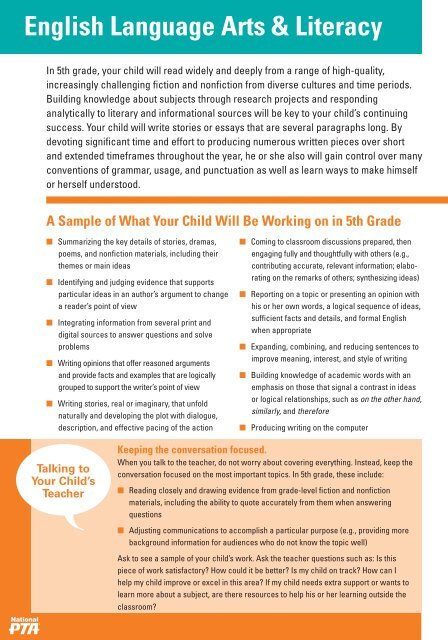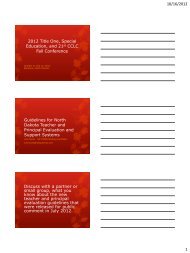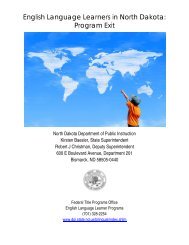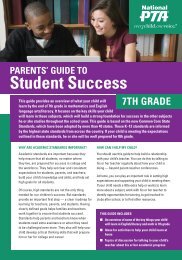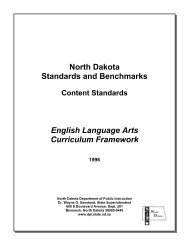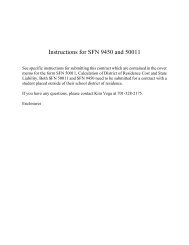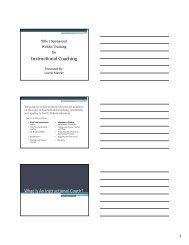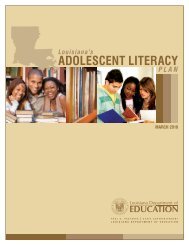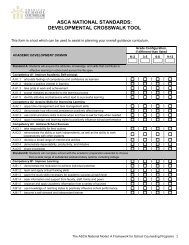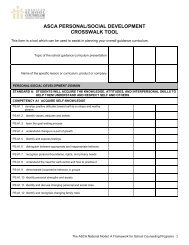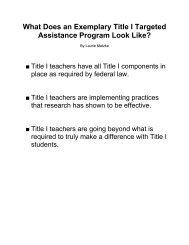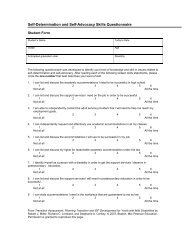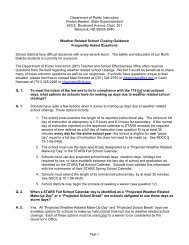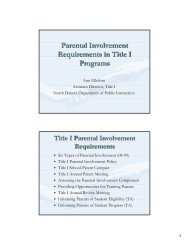Grade 5 Guide
Grade 5 Guide
Grade 5 Guide
You also want an ePaper? Increase the reach of your titles
YUMPU automatically turns print PDFs into web optimized ePapers that Google loves.
English Language Arts & Literacy<br />
In 5th grade, your child will read widely and deeply from a range of high-quality,<br />
increasingly challenging fiction and nonfiction from diverse cultures and time periods.<br />
Building knowledge about subjects through research projects and responding<br />
analytically to literary and informational sources will be key to your child’s continuing<br />
success. Your child will write stories or essays that are several paragraphs long. By<br />
devoting significant time and effort to producing numerous written pieces over short<br />
and extended timeframes throughout the year, he or she also will gain control over many<br />
conventions of grammar, usage, and punctuation as well as learn ways to make himself<br />
or herself understood.<br />
A Sample of What Your Child Will Be Working on in 5th <strong>Grade</strong><br />
■ Summarizing the key details of stories, dramas,<br />
poems, and nonfiction materials, including their<br />
themes or main ideas<br />
■ Identifying and judging evidence that supports<br />
particular ideas in an author’s argument to change<br />
a reader’s point of view<br />
■ Integrating information from several print and<br />
digital sources to answer questions and solve<br />
problems<br />
■ Writing opinions that offer reasoned arguments<br />
and provide facts and examples that are logically<br />
grouped to support the writer’s point of view<br />
■ Writing stories, real or imaginary, that unfold<br />
naturally and developing the plot with dialogue,<br />
description, and effective pacing of the action<br />
■ Coming to classroom discussions prepared, then<br />
engaging fully and thoughtfully with others (e.g.,<br />
contributing accurate, relevant information; elaborating<br />
on the remarks of others; synthesizing ideas)<br />
■ Reporting on a topic or presenting an opinion with<br />
his or her own words, a logical sequence of ideas,<br />
sufficient facts and details, and formal English<br />
when appropriate<br />
■ Expanding, combining, and reducing sentences to<br />
improve meaning, interest, and style of writing<br />
■ Building knowledge of academic words with an<br />
emphasis on those that signal a contrast in ideas<br />
or logical relationships, such as on the other hand,<br />
similarly, and therefore<br />
■ Producing writing on the computer<br />
Talking to<br />
Your Child’s<br />
Teacher<br />
Keeping the conversation focused.<br />
When you talk to the teacher, do not worry about covering everything. Instead, keep the<br />
conversation focused on the most important topics. In 5th grade, these include:<br />
■ Reading closely and drawing evidence from grade-level fiction and nonfiction<br />
materials, including the ability to quote accurately from them when answering<br />
questions<br />
■ Adjusting communications to accomplish a particular purpose (e.g., providing more<br />
background information for audiences who do not know the topic well)<br />
Ask to see a sample of your child’s work. Ask the teacher questions such as: Is this<br />
piece of work satisfactory? How could it be better? Is my child on track? How can I<br />
help my child improve or excel in this area? If my child needs extra support or wants to<br />
learn more about a subject, are there resources to help his or her learning outside the<br />
classroom?


